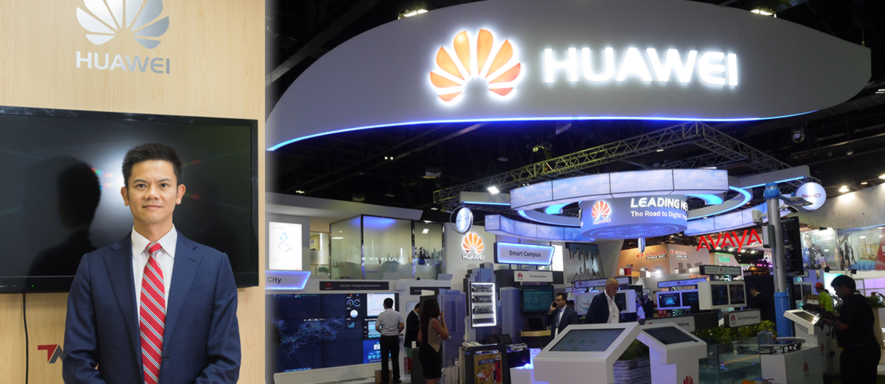Chinese telecom equipment provider and smartphone maker Huawei aims to take on Amazon and Alibaba as a global provider of public cloud services, the company said in April. Edward Zhou, Huawei’s VP of Global Public Affairs, reiterated this to Telecom Review recently, saying Huawei can provide more trustworthy cloud services based on its legacy telecom experience.
Huawei used to provide cloud infrastructure for its customers but now also provides cloud services. In April this year, the company said it would expand cloud computing with a dedicated division, with the purpose of strengthening its public cloud offering, which involves shared data infrastructure, as opposed to dedicated infrastructure built for single customers.
“We believe we can provide more trustworthy cloud services based on our telecom background,” Mr. Zhou told Telecom Review. “Telecom services are very different from traditional IT services, and we draw upon this experience to build better, more reliable cloud services.”
Tailor-made cloud services are fundamental to Huawei’s offerings, Zhou said. “We make customizations based on our global version,” he said. Providing more security in its cloud services is also very important for Huawei’s customers today, Zhou added, because cloud is still a relatively new technology and Huawei needs to ensure that its customers are protected.
“Cybersecurity is a very hot topic for all countries and companies,” Mr. Zhou said. “Inside Huawei we have a very strong team dedicated to cybersecurity for our solutions and products – security is imbedded in these offerings. We believe high quality includes high security.”
Consultancy firm Gartner predicts the market for public cloud services to reach $383 billion by 2020 from $247 billion this year. Worldwide IT spending is projected to total $3.7 trillion in 2018, an increase of 4.3 percent from 2017 estimated spending of $3.5 trillion. By expanding into cloud computing, Huawei hopes to diversify away from its hardware focus and develop software-based revenue.
The company’s strategic focus will be on its telecom partners’ cloud transformation, Eric Xu, deputy chairman of Huawei’s board and one of three rotating chief executive officers, recently told Reuters. Xu reflected Zhou’s view that Huawei’s global network of telecom clients gives the firm a distinct advantage.
“Huawei as a brand is strong because it is not only about consumer smartphones. We have three different business groups: carrier, enterprise and consumer,” Mr. Zhou said, discussing the company’s future aspirations. “I think our strategy to build the brand revolves around quality – it is Huawei’s highest priority. We aim to deliver higher quality than other players in this market.”
Huawei has established its services in more than 170 countries around the world, aiming to become a “global iconic tech brand”. The company does face challenges, however, said Mr. Zhou. For example, Huawei often faces data protection rules and other regulatory barriers in some countries that it operates in. The company’s strategy is to follow the local rules and cater to local needs.
“We try to provide governments with expertise and knowledge about technology to support government initiatives,” Mr. Zhou said. “Many countries are talking about digital transformation and we have the technology and expertise to offer them support. We are very happy to contribute some of our value to governments pushing for change.”
Huawei’s broader vision, Zhou said, is to facilitate the Internet of Things (IoT) era, where everything will be connected by sensors. He said Huawei is a top investor in R&D (research and development) and focuses on bringing together the world's best intellectual resources to strengthen its innovation capability.
“Thanks to the emergence of new technologies including 5G and NB-IoT (Narrowband IoT), it will be easy to connect everything and create more value,” said Zhou. He added that the company also aims to support the development of cloud computing technologies – adding intelligence to cloud services.
“Everything will be connected and intelligent,” said Zhou. “That’s our larger vision.”





